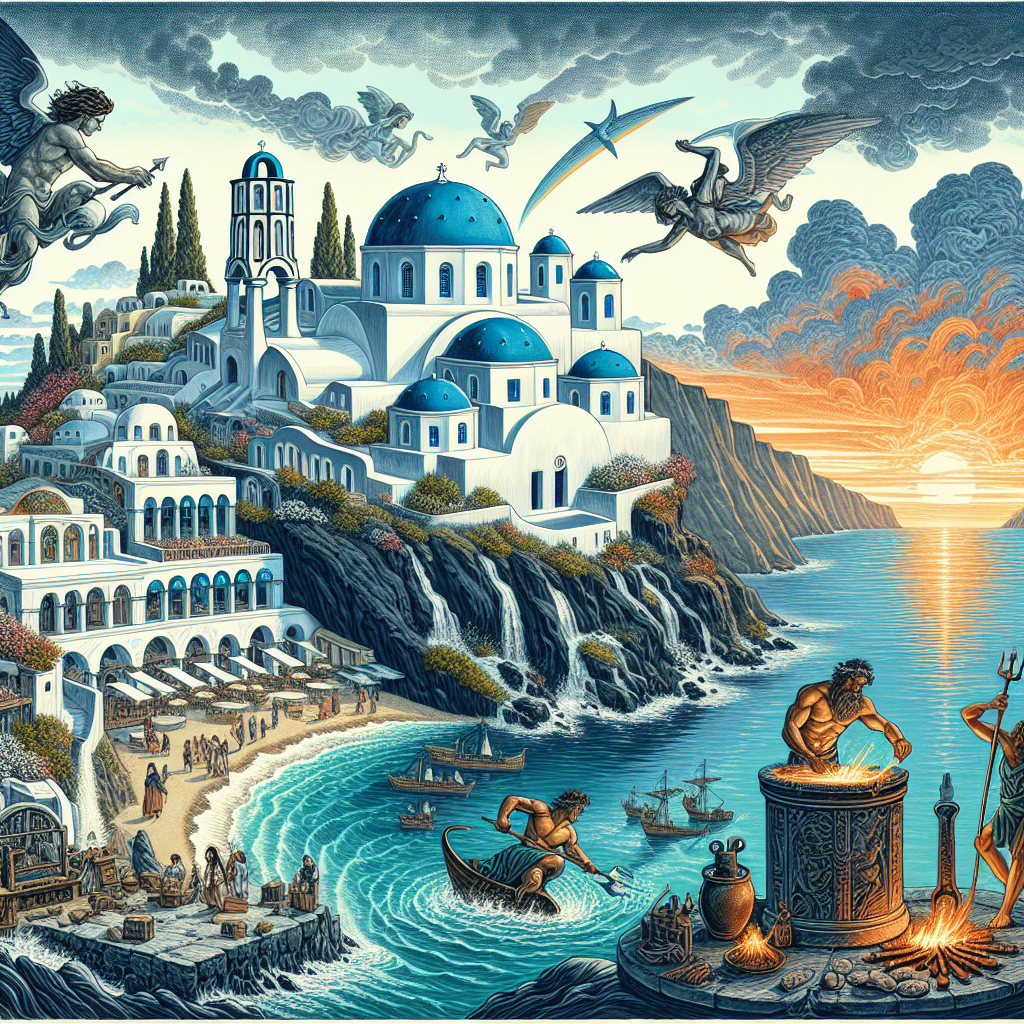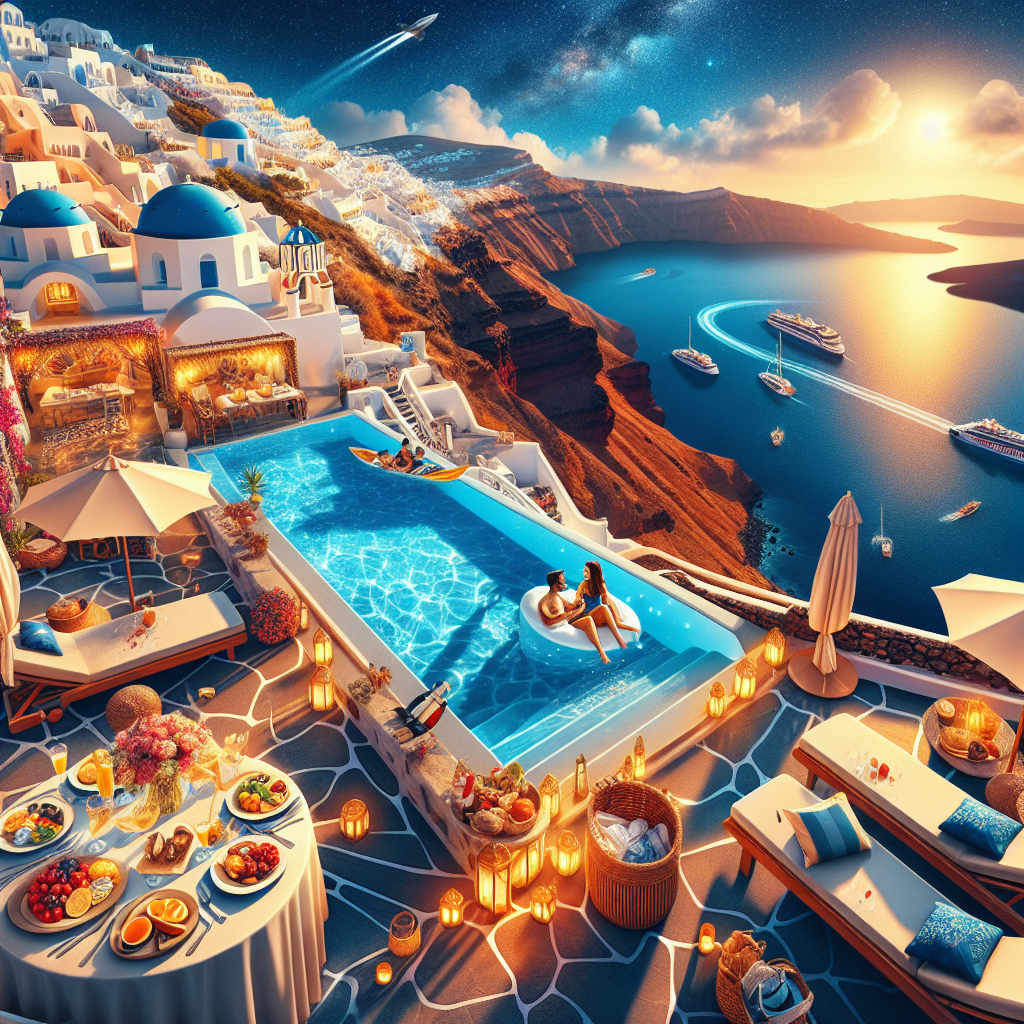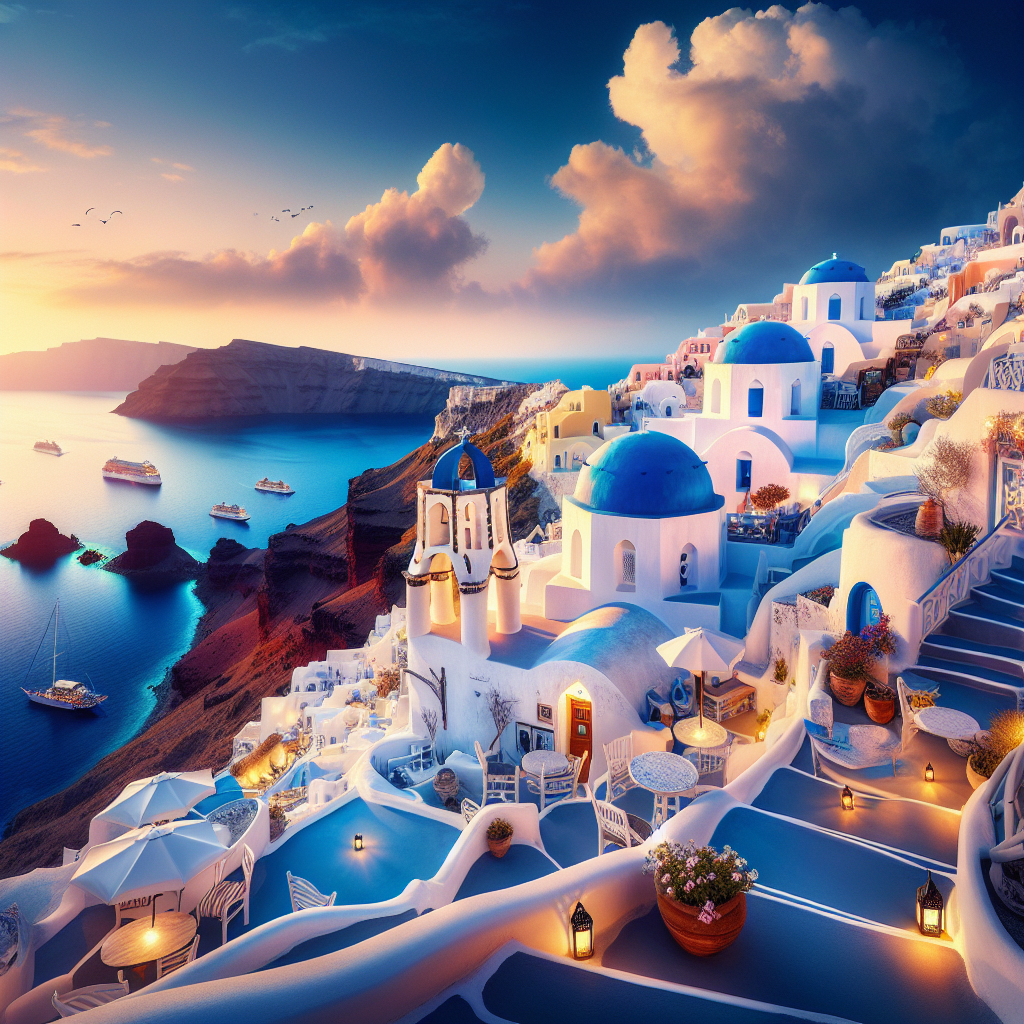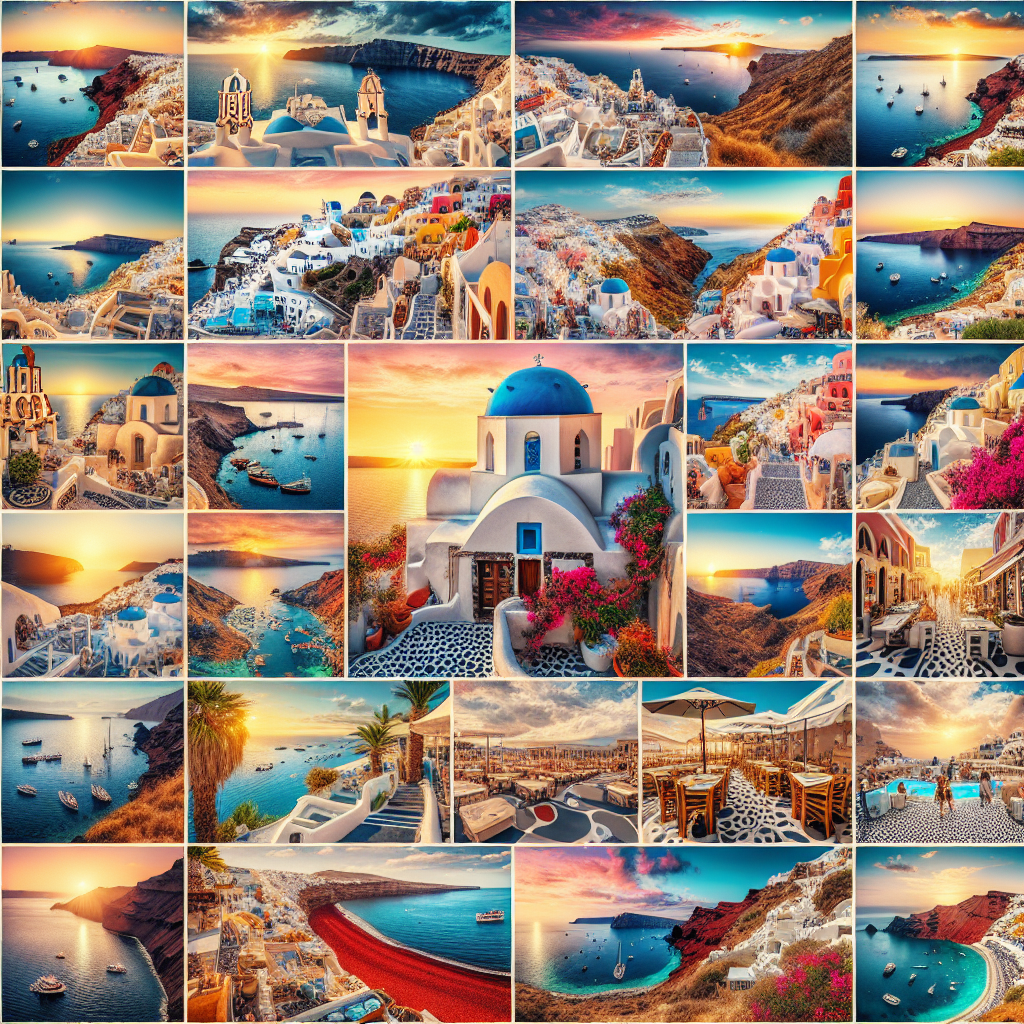Exploring the Greek Mythology of Santorini
Known for its stunning vistas, crystal-clear waters, and breathtaking sunsets, Santorini is often celebrated as one of the world’s most beautiful islands. While its iconic landscapes draw millions of travelers each year, Santorini is also steeped in a rich tapestry of Greek mythology that adds another layer of allure to this Aegean gem. For travelers eager to delve into the mystical and mythical aspects of Santorini, this guide unravels the island’s legends, gods, and historic landmarks connected to ancient Greek mythology.
The Role of Santorini in Greek Mythology
Santorini, or Thira as it was known in ancient times, is entrenched in Greek mythology. The island’s geological and historical significance ties it deeply into legends that span gods, titans, and ancient civilizations.
Creation of Santorini
According to Greek mythology, Santorini emerged from the sea, created by the gods themselves. The tale recounts how the island was born from a portion of clay thrown into the sea by Euphemus, son of Poseidon, the god of the sea. Euphemus was seeking to create new land as he wandered the Aegean waters. The clay transformed into an island, later known as Thira.
Santorini and the Lost City of Atlantis
One of the most intriguing legends connected to Santorini is its association with Atlantis, the mythical lost city described by the philosopher Plato. Some scholars and enthusiasts argue that the cataclysmic volcanic eruption that occurred around 1600 BCE on Santorini may have inspired the legend of Atlantis. This ancient eruption buried the Minoan civilization in ashes, which some believe parallels Atlantis’ catastrophic demise.
This connection is not without merit. Excavations at Akrotiri have revealed a highly advanced civilization that once thrived on Santorini, mirroring Plato’s descriptions of Atlantis. To explore the historical aspects of Santorini and its ties to Atlantis, consider checking out our article on Exploring Santorini’s Rich History: Must-Visit Sites.
Mythological Figures and Stories Linked to Santorini
Beyond its creation myths, Santorini is linked to various gods, goddesses, and mythological creatures that have left an indelible mark on the island’s folklore.
Poseidon
Poseidon, the god of the sea, earthquakes, and horses, has a significant connection to Santorini. As the myth goes, Poseidon blessed his son Euphemus with the power to create land, leading to Santorini’s birth. Santorini being an island formed by volcanic activity symbolizes Poseidon’s dominion over the sea and natural forces.
Hephaestus
With Santorini being a volcanic island, it’s no surprise that Hephaestus, the god of fire and blacksmiths, features in its mythology. The towering volcanic caldera is often associated with Hephaestus’ forge, a place where volcanic activity is seen as the god’s handiwork. The rugged, lava-formed landscapes appear to be crafted by Hephaestus himself, showcasing the raw power of nature.
Mythological Sites on Santorini
Many sites across Santorini are steeped in myth and legend. Visiting these locations offers a unique opportunity to step back in time and feel the presence of ancient gods and heroes.
Akrotiri
As mentioned earlier, the ancient city of Akrotiri is often considered the inspiration for Plato’s Atlantis. Buried under volcanic ash, this archaeological site offers a glimpse into a civilization that existed thousands of years ago. Explore the remains of this advanced society through our guide to Santorini’s historical sites for a comprehensive overview of Akrotiri.
Ancient Thera
Perched high above the Aegean Sea, the ruins of Ancient Thera reveal a different aspect of Santorini’s history. While not as closely linked to myth as Akrotiri, Ancient Thera offers insights into the island’s Hellenistic past and the deities worshipped by its inhabitants. Learn more about the cultural impact of Ancient Thera through our top cultural experiences in Santorini.
Exploring Santorini’s Myths Through Activities
To fully immerse yourself in Santorini’s mythological allure, here are some activities that bring the island’s legends to life.
Volcano Tours
Often referred to as “Hike to the Heart of the Caldera”, a volcanic tour is a must-do for anyone interested in the island’s geological and mythological history. Walking along the edge of the caldera, you can almost feel the presence of Hephaestus at work, crafting the island from fire and magma. Don’t miss out, take a look at why you shouldn’t miss a volcano tour on Santorini.
Historical Walks
Joining a guided tour through Akrotiri or Ancient Thera gives you a deeper understanding of Santorini’s mythological and historical significance. Expert guides often share stories and myths that you wouldn’t find in guidebooks, enriching your visit exponentially.
Local Myths and Legends
Santorini is not just about the grand myths of gods and titans; it also has a wealth of local legends passed down through generations.
The Legend of the Santorini Black Sand Beaches
One of the most captivating local legends is that of Santorini’s unique black sand beaches. It is said that these beaches are remnants of volcanic battles fought between gods and titans. The black sand signifies the remains of Hephaestus’ forge, turned into fine grains scattered along the island’s shores.
Saint Irene and Pirate Legends
The island is also named after Saint Irene, a Christian martyr. According to local legend, she once protected the island from pirates, calling upon the divine to safeguard its people. This tale intertwines history, religion, and mythology, highlighting the island’s rich tapestry of stories.
The Influence of Mythology on Santorini’s Architecture
Santorini’s unique architectural style, featuring whitewashed buildings with blue domes, is not merely an aesthetic choice but is also deeply tied to its mythological and historical context.
Cycladic Architecture
The minimalist yet captivating Cycladic architecture prevalent in Santorini is believed to be inspired by the island’s natural and mythological landscape. The blue domes reflect the sky and sea, realms ruled by gods like Zeus and Poseidon, while the white buildings symbolize purity and sanctity.
Churches and Chapels
Numerous churches and chapels dot the Santorini landscape, many dedicated to saints and gods who, according to legend, have protected the island and its inhabitants. These sacred sites serve as a testament to Santorini’s enduring religious and mythological traditions.
For a more detailed exploration of Santorini’s charming villages and their unique architectural beauty, check out our guide on charming villages in Santorini.
The Modern-Day Mythological Experience
In today’s world, Santorini continues to weave its ancient myths into modern experiences, ensuring that visitors can delve deeply into its legendary past while enjoying contemporary comforts.
Festivals and Celebrations
Santorini hosts various festivals throughout the year that celebrate its mythological and cultural heritage. The island’s events often feature traditional music, dance, and storytelling, showcasing the legends that have shaped its identity.
Accommodations with Mythical Themes
Many hotels and resorts on Santorini offer stays that draw upon the island’s mythological aspects. Whether it’s through the décor, the names of suites, or specially curated experiences, these accommodations allow visitors to immerse themselves in the island’s legendary past. Explore our complete guide to accommodation options in Santorini for some of the best myth-inspired stays.
Family-Friendly Mythological Adventures
Discovering Santorini’s myths is not just for history buffs and mythology enthusiasts; families can also embark on these adventures together.
Mythology-Themed Tours for Kids
Specialized tours tailor-made for families and children can make the exploration of Santorini’s myths fun and educational. These tours often include interactive storytelling sessions that captivate younger audiences.
Interactive Museums
Santorini has several museums that provide interactive exhibits on its mythological and historical background, perfect for engaging family visits. These museums offer an excellent opportunity for children to learn about ancient myths in a fun, hands-on manner.
For more family-friendly activities in Santorini, don’t miss out on our guide to the best family-friendly activities in Santorini.
Shopping with a Mythological Twist
No trip to Santorini is complete without some shopping, especially when you can find items that evoke the island’s mythological heritage.
Souvenirs and Artefacts
From handmade jewelry inspired by ancient gods to replicas of historical artefacts, Santorini offers a range of mythical souvenirs that make for unique keepsakes and gifts.
Myth-Inspired Art
Local artists often create works that draw on the island’s mythology, from paintings and sculptures to pottery. Purchasing these pieces not only supports local artisans but also allows you to bring a piece of Santorini’s legendary past home with you.
Get more tips on where to shop in Santorini by reading our ultimate Santorini shopping guide.
Practical Tips for Exploring Santorini’s Myths
Delving into the mythology of Santorini can be an enriching experience, but it’s essential to plan wisely to make the most of your visit.
Seasonal Considerations
Santorini is a popular tourist destination, with peak seasons bringing large crowds. Visiting during the shoulder seasons of spring and fall can provide a more peaceful experience, allowing you to truly connect with the island’s mythological heritage.
Safety Tips
Exploring archaeological sites, hiking volcanic landscapes, and engaging in outdoor activities can sometimes present risks. It’s crucial to follow local safety guidelines and be well-prepared. For more detailed advice, take a look at our Santorini safety tips.
Budgeting
While delving into the myths and legends of Santorini can be a rewarding experience, it’s essential to budget accordingly. From guided tours to specialized activities, the costs can add up. Plan your expenses ahead of time to ensure a stress-free experience. For budgeting insights, read our guide on how to plan your Santorini trip on any budget.
The Enduring Allure of Santorini Greek Mythology
From its dramatic landscapes that speak of ancient volcanic forces to its ruins whispering tales of long-lost civilizations, Santorini is a treasure trove of myth and legend. Whether you’re wandering through the remnants of Akrotiri, standing atop the caldera, or simply soaking in the island’s ethereal beauty, the essence of Santorini Greek mythology is ever-present, inviting you to explore, discover, and be enchanted.
Santorini is more than just a pretty face; it’s a land where myths come alive, where the gods once roamed, and where every corner has a story to tell. So pack your bags, lace up your walking shoes, and get ready to embark on a mythological adventure that promises to be as timeless as the legends it harbors.
Conclusion
Exploring the Greek mythology of Santorini offers an enriching dimension to your travel experience. From its creation stories to local legends, every aspect of the island is imbued with a sense of wonder and mystery. This guide serves as your gateway to understanding and appreciating the mythological richness that makes Santorini not just a destination, but a timeless journey through the annals of history and legend.
Whether you’re a history buff, a mythology enthusiast, or simply a curious traveler, Santorini promises an unforgettable adventure that transcends the ordinary. Dive deep into its myths, walk in the footsteps of gods, and let the legends of this extraordinary island captivate your soul.
For more information on planning your visit to Santorini, including accommodation options and cultural experiences, check out our related blog posts. Embrace the myths, explore the legends, and create memories that will last a lifetime.




